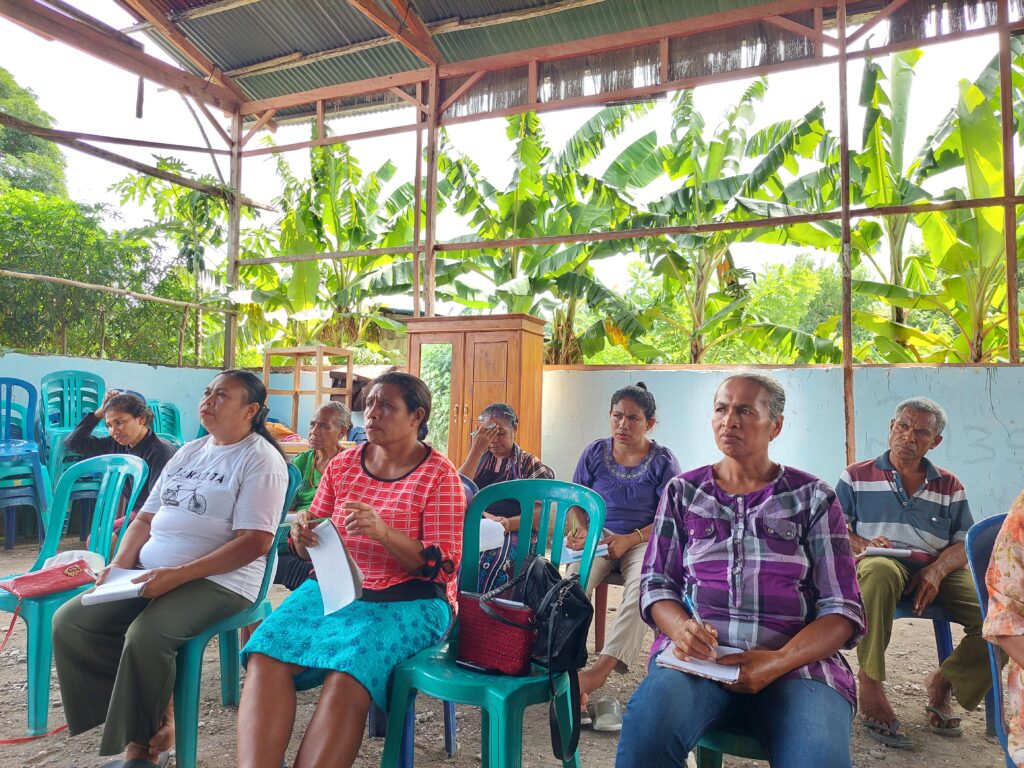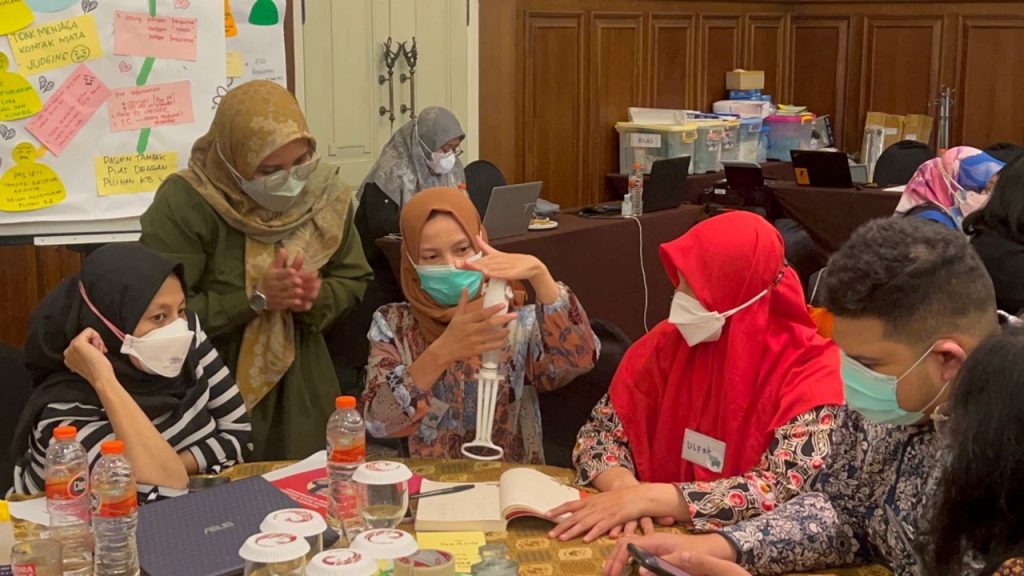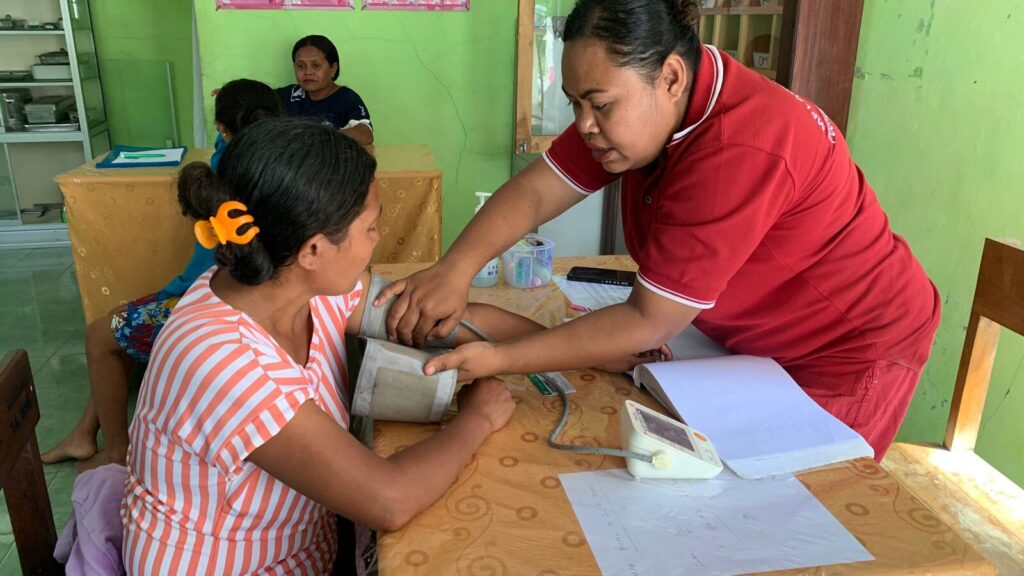“Misinformation [tentang kontrasepsi] can cause fear in the community” said Mama Oliva Bhanni, a cadre of Family Empowerment and Welfare (PKK) in Linamnutu Village, South Central Timor District, East Nusa Tenggara Province.
The impact of people’s belief in myths about contraceptive methods is very serious. A number of residents in Linamnutu Village, South Central Timor, are afraid to install contraceptives because of myths. As a result, they have not been able to plan family planning by spacing pregnancies ideally.
One myth that is still spreading in the community is that vasectomy can cause male genitalia to become unable to erect or impotent. There are also people who still believe that implants and IUDs (Intrauterine Contraceptive Device or spiral birth control) can disappear inside the body.
Dispelling people’s belief in myths is not easy. This was recognized by a PKK cadre named Mama Oliva Bhanni. For years she has been trying to educate women to consult the local midwife for family planning during Posyandu services in her village. However, not all women have this awareness.
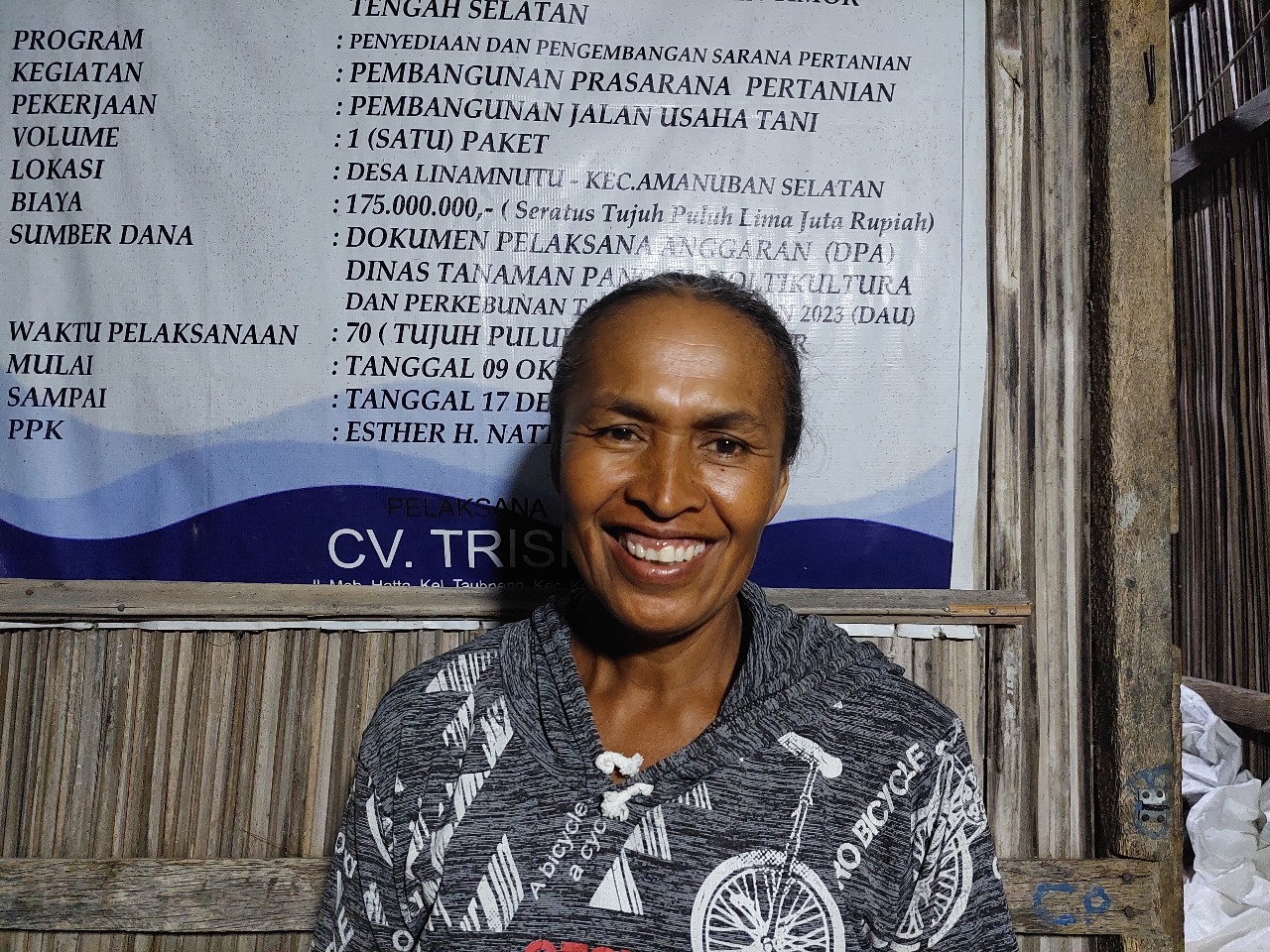
Mama Olivia when met by the team from CIS Timor Foundation. Photo by: CIS Timor Foundation
She felt more enthusiastic about providing socialization about family planning after participating in discussions and training activities organized by the IPAS Indonesia Foundation in collaboration with the CIS Timor Foundation. The activity discussed issues around reproductive health, gender and women’s rights such as family planning.
“As a woman, I feel that planning a pregnancy using birth control is very crucial. Therefore, information related to birth control must also be valid,” she said.
After attending the training, Mama Olivia often shared the material not only during Posyandu activities. Wherever there is a crowd, such as rice planting, family gatherings, she approaches to conduct socialization. She feels confident because the material presented in the training is more comprehensive.
One of the people that Mama Olivia managed to convince was Mama Erni Nome. She finally decided to install birth control after a long process of providing information, discussion, and socialization with her family.
Mama Olivia said that Mama Erni had a fear because she often heard that when she used the contraceptive, it would be difficult for her to move. Because of this myth, she never wanted to use contraceptives and was even afraid to ask health workers.
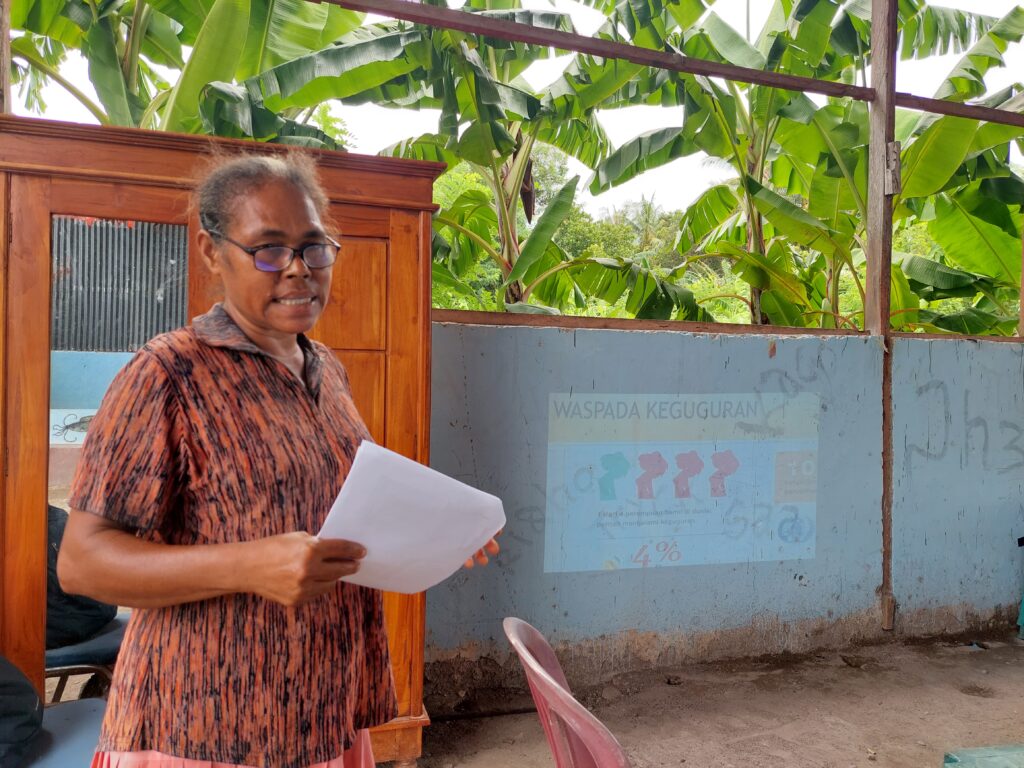
One of the cadres is participating in the Training of Trainers related to reproductive health. Photo by: CIS Timor Foundation
“Mrs. Erni was afraid to use birth control at that time, but I tried to convey the information slowly and not like I was forcing her,” she added.
After getting information and direction from Mama Oliva, she agreed with her husband to go to a health facility to use a birth control implant. Since using the implant, Mama Erni feels happy because she has time to take good care of herself and her family.
From this process, Mama Oliva realized that villagers need to get good and correct information.
The 2023 BKKBN (National Population and Family Planning Agency) report shows that the rate of modern contraceptive use in NTT is still below the national average. Namely, at 42.2% out of 59.40%.
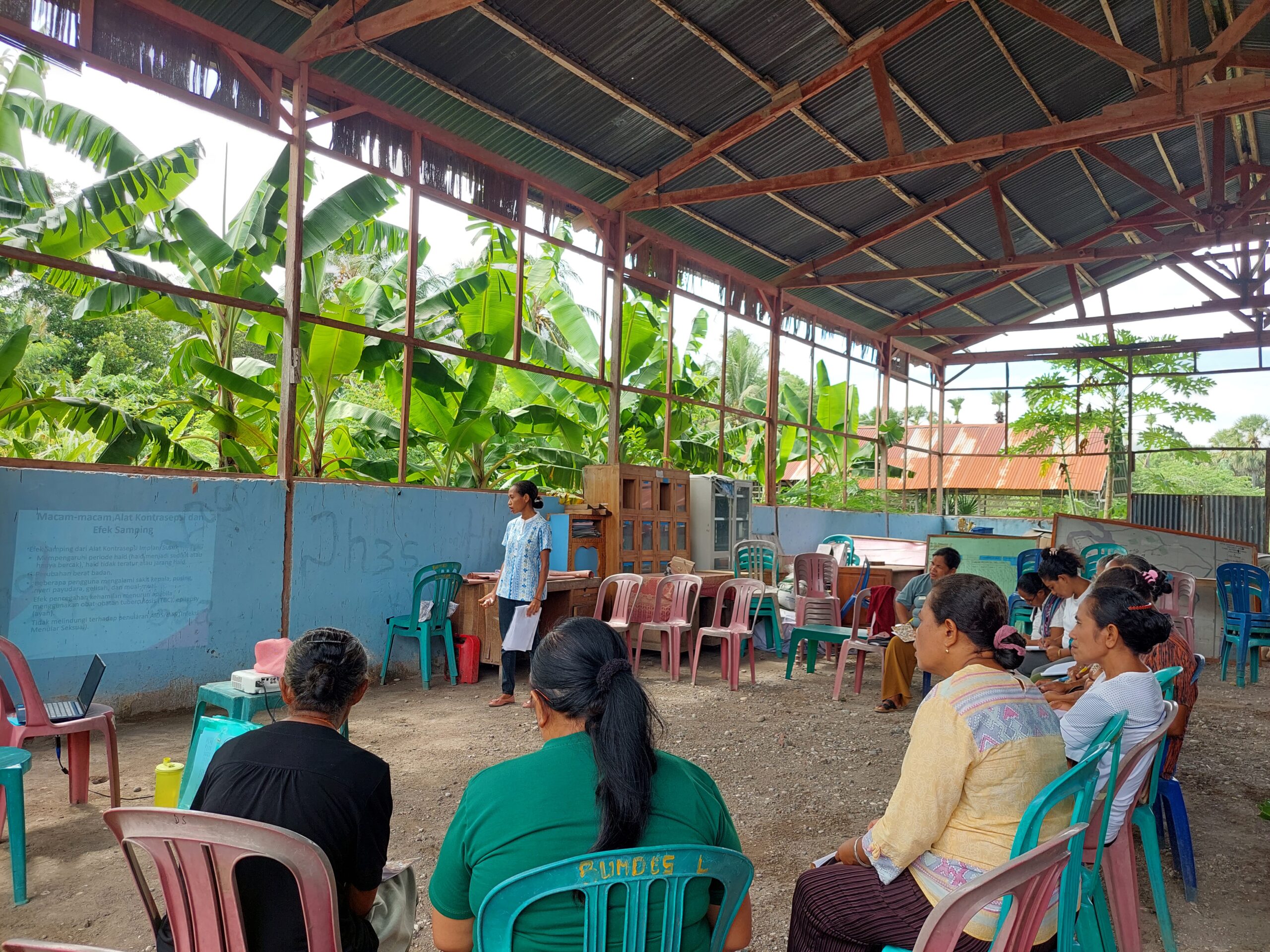
Discussion on reproductive health in Linamnutu Village. Photo by: CIS Timor Foundation
The results of an assessment analysis by the IPAS Indonesia Foundation in NTT show that one of the factors for the low rate of modern contraceptive use is access to credible information about family planning. Many women in NTT do not continue contraceptive use after the first use due to lack of access to information and strong belief in myths.
Through the TAKENUSA Project (Tekad Bersama untuk Perempuan Nusa Tenggara), IPAS Indonesia Foundation is trying to strengthen cadres to become leaders to encourage women to realize their rights in reproduction, including family planning. In addition, we also train midwives to improve their skills in providing family planning services.
The project is expected to reduce maternal mortality and prevent stunting. By having family planning, women can keep their pregnancies spaced out. That way, the opportunity to become a prosperous family is higher.
